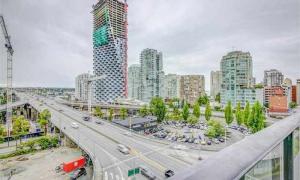Buying a Home in Vancouver - Guide you Step by Step
Whether you’re purchasing a brand new home or a resale property, investing in your first home or your next one, buying a home is a big decision
VANCOUVER, BC, CANADA, November 18, 2020 /EINPresswire.com/ -- Whether you’re purchasing a brand new home or a resale property, investing in your first home or your next one, buying a home is a big decision. In fact, it’s probably the single largest purchase you’ll ever make, so you want to make sure that you make awell-informed decision.
It’s important to be well-informed and well-prepared before you buy. Going about the home buying process carefully, asking the right questions and getting all the information you need can protect you as a consumer and result in a good decision for you and your family.
This guide is designed to give you some of the information you need. It takes you through the home buying process and explains things you need to know, suggests questions to ask and gives information about where to get help. Although it is primarily aimed at buyers of newly constructed homes, it will also be useful for buyers of resale homes.
HOW NEW IS “NEW”?
This guide refers to homes at various stages of construction and sale:
• New home: a recently constructed home
• Pre-sale home: a home that is planned or under construction, and for which a buyer can enter into a pre-sale contract
• Resale home: an existing home that has been previously occupied, and is being sold to a new owner
Because this guide has a consumer protection focus, it does not attempt to cover all aspects of home buying, such as house-hunting or financing. But it does point you to other resources where you can find more information.
BUILDING, BUYING AND SELLING A HOME: WHO’S INVOLVED IN THE PROCESS?
As the home buyer, you’re at the centre of a large number of parties, including:
• developers and builders
• contractors
• government regulators
• home warranty insurance providers
• tradespeople
• architects, designers and engineers
• lawyers and notaries public
• bankers and mortgage brokers
• strata councils and strata corporations
• real estate salespersons
• insurance brokers, and
• home inspectors.
While the responsibility for the quality of the final product rests on many shoulders, it is up to you as the buyer to work closely with these parties to help ensure that you will not experience a problem with your home after you move in; or if there is a problem, ensuring that it is dealt with properly.
British Columbia has the strongest construction defect protection system for buyers of new homes in Canada. This consumer protection is provided through the Homeowner Protection Act. Under this provincial legislation, all new homes offered for sale or built under a construction contract in British Columbia must meet the following requirements:
• new homes must be constructed by a builder licensed by BC Housing, and
• new homes must have third-party home warranty insurance. This home warranty insurance provides up to two years of coverage for defects in design, materials and labour (some limits apply), five years for defects in the building envelope and 10 years for structural defects (so it’s often referred to as “2-5-10”). If a new home is re-sold within 10 years, any remaining home warranty insurance coverage is automatically passed on to subsequent purchasers.
However, some new homes, such as those constructed by owner builders, are exempt from these requirements. These consumer protections, exemptions and steps you can take to protect yourself as a homebuyer are described in more detail in this guide.
Before you start looking for your new home, ask yourself a few basic questions:
• Where do I want to live?
• What type and style of home do I want?
• What are the choices?
• What can I afford?
Make a list of your household’s needs, wants and “nice-to-haves” to guide your search.
Consumers have many choices when buying a home. There are various housing types and styles to consider including, for example, detached houses, duplexes, apartments (high-, mid-and low-rise in wood or concrete construction), and row houses and townhouses. Your needs, preferences, household size and finances will determine the housing type that is most suitable for you.
In many cases, the housing type you choose will determine the form of legal ownership you have with the property. The main types of homeownership include:
1) Freehold: the buyer owns the home in fee simple. Freehold ownership can be strata or non-strata:
• Strata (sometimes called condominium): The buyer owns a specific housing unit (referred to as a strata lot), which is contained in a larger strata property or development. The owner has shared ownership and responsibility for the common property shown on the strata and included in the by-laws, such as the building envelope, hallways, roof, grounds, parking garages, etc.
• Non-strata: The buyer owns, for example, a single-detached house on a lot in a subdivision. The owner has full ownership and responsibility for the building(s) and land.
2) Leasehold: The owner has the right to use a property for a defined period of time, but does not actually own (have freehold in) the property.
3) Cooperative: The owner owns a share in a company or cooperative venture which, in turn owns (has freehold or leasehold in) a property containing a number of housing units.
Each homeownership option has its pros and cons, as well as legal implications in which you need to be aware when buying a home. Your real estate salesperson or lawyer can provide you with information on these ownership options specific to your situation.
For more info, please talk to 温哥华房产网 Realtors
Ran Chen
BuyProperties BC
+1 778-858-2876
email us here
Visit us on social media:
Facebook
Twitter
LinkedIn
Legal Disclaimer:
EIN Presswire provides this news content "as is" without warranty of any kind. We do not accept any responsibility or liability for the accuracy, content, images, videos, licenses, completeness, legality, or reliability of the information contained in this article. If you have any complaints or copyright issues related to this article, kindly contact the author above.


